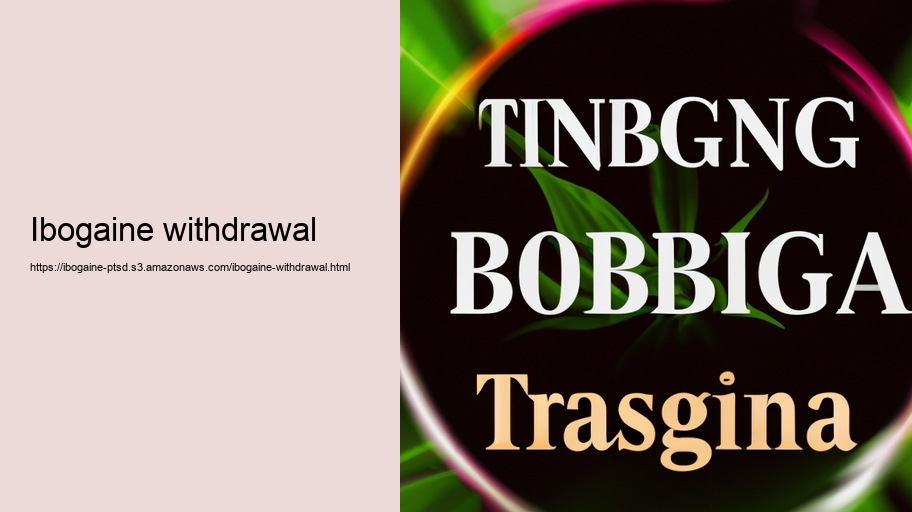Title: Ibogaine and the Journey through Withdrawal
Withdrawal is a formidable challenge that confronts individuals grappling with substance dependence, a physical and psychological battle against the chains of addiction. In the quest for liberation from this affliction, an unconventional ally has emerged from the root bark of an African shrub: ibogaine. This naturally occurring psychoactive compound has been gaining recognition as a potential tool in interrupting patterns of addiction, offering not just relief from withdrawal symptoms but also insight into the deeper layers of one's psyche.
Ibogaine originates from Tabernanthe iboga, a plant native to West Central Africa, where it has been used for centuries in traditional spiritual practices by indigenous communities. In Western contexts, however, its reputation pivots on its unique ability to alleviate the crippling effects of withdrawal from opioids and other addictive substances. As people seek holistic approaches to recovery, ibogaine presents itself as more than just another medication; it's seen by some as a catalyst for profound personal transformation.
The experience of ibogaine treatment is often described as intense and introspective. Unlike conventional treatments that may solely focus on suppressing withdrawal symptoms, ibogaine appears to reset substance receptor sites within the brain and metabolize stored drugs in body tissue. This pharmacological action can significantly reduce or eliminate cravings and withdrawal symptoms for extended periods following treatment.
Despite its promise, ibogaine is not a panacea; it demands respect for its potent effects on both mind and body. Administered in clinical settings under medical supervision—due to potentially serious cardiovascular risks—the process begins with pre-screening candidates for underlying health issues that could contraindicate use. Once cleared, individuals embark on what many report as a deeply revealing psychotherapeutic journey facilitated by the drug's hallucinogenic properties.
Patients frequently recount vivid visions or dreamlike sequences during their experience that often delve into past traumas or life events linked to their addictive behaviors. These insights are thought to be integral to the healing process—providing users with new perspectives and motivations toward sobriety while they navigate through detoxification without the usual agonizing withdrawal syndromes associated with quitting drugs "cold turkey."
However romanticized these accounts might sound though, there are real dangers associated with ibogaine therapy which must be addressed responsibly. The lack of regulation and formal research presents concerns over safety standards at treatment facilities outside jurisdictions where conventional oversight exists.
Further scientific inquiry is crucial in understanding how best to utilize ibogue’s therapeutic potential while minimizing risks. At present times (as of my last knowledge update), it remains illegal or strictly controlled in several countries including the United States due primarily to its classification as a Schedule I substance—a label denoting high abuse potential without accepted medical use despite anecdotal evidence suggesting otherwise.
In conclusion, navigating through addiction withdrawal with ibogane represents not merely an escape from physical dependency but also an opportunity for existential reevaluation—an odyssey through inner space where one may confront personal demons under the gaze of this enigmatic molecule’s influence. As we continue exploring innovative approaches towards recovery rooted both in ancient wisdom and modern science alike—careful consideration must be paid towards creating safe, accessible pathways allowing those afflicted by addiction access avenues promising renewed hope beyond conventional horizons.
